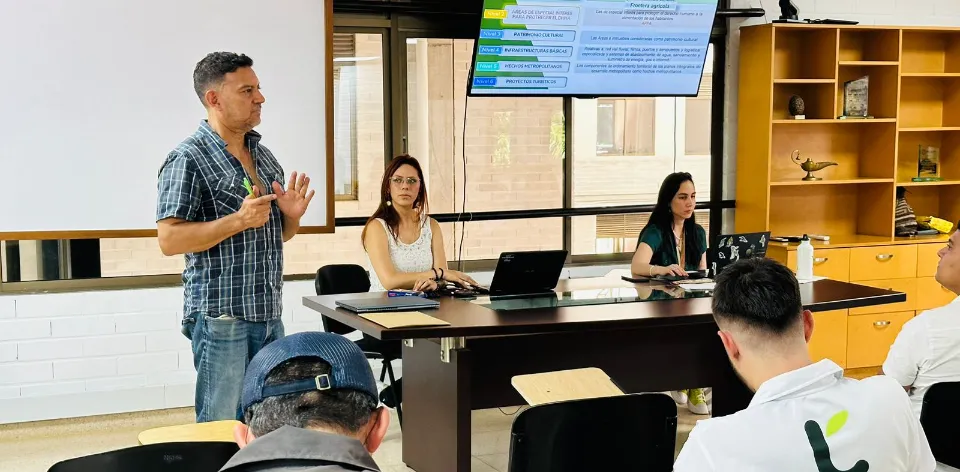 20/8/2024
20/8/2024
Representatives from Caramanta, Valparaíso, Támesis, Pueblorrico, Jericó, Santa Bárbara, and La Pintada learn about APPA progress

La Pintada, Antioquia, (@UPRAColombia, @claudialili76). The Unit for Rural Agricultural Planning (UPRA) presented the progress on identifying Protected Areas for Food Production (APPA) in 22 municipalities of Southwestern Antioquia to producers, the private sector, and community representatives. This socialization took place in La Pintada, specifically at the Comfama Julio C. Hernández Park.
Carlos León Quintero, the UPRA APPA process leader for Southwestern Antioquia, stated, "Between August 13 and 16, we are holding four work sessions in the municipalities of La Pintada, Amagá, and Andes. The purpose is to engage with local stakeholders from various sectors, including planning secretariats, women's, youth, and farmers' organizations. The idea is to consider their local perceptions to advance the preparation of the final technical document for the APPA in Antioquia."
The socialization event in La Pintada brought together representatives from seven municipalities: Caramanta, Valparaíso, Támesis, Pueblorrico, Jericó, Santa Bárbara, and La Pintada.
During the session, the UPRA technical team outlined the steps for declaring an APPA:
- Identify the protection zones for food production.
- Delimit the agricultural frontier at a more detailed scale.
- Gather more detailed information to identify the specific situations of each territory (including other land use determinants, economic activities, local land use planning, among others).
- Socialize, gather feedback, and coordinate with local stakeholders throughout the process.
- Process the identification of the APPA.
- Declare the APPA by the Ministry of Agriculture and Rural Development.
Additionally, UPRA indicated that the APPA would benefit the community by: helping to ensure the human right to food, protecting land for food production, promoting family and community farming economies, and safeguarding Rural Territorialities.
At the end of the event, Gabriel Abad, president of the Community Action Board of La Oculta village in Támesis (Antioquia), commented: "Historically, this subregion has been very neglected by both national and departmental governments. I was very pleasantly surprised by the national government's interest in strengthening food production because I believe this is a crisis that we must address together, and Colombia deserves to have food self-sufficiency."
In the coming days, the UPRA technical team will visit other municipalities, such as Amagá and Andes, to present the progress on identifying the APPA to additional local actors in the department of Antioquia.

